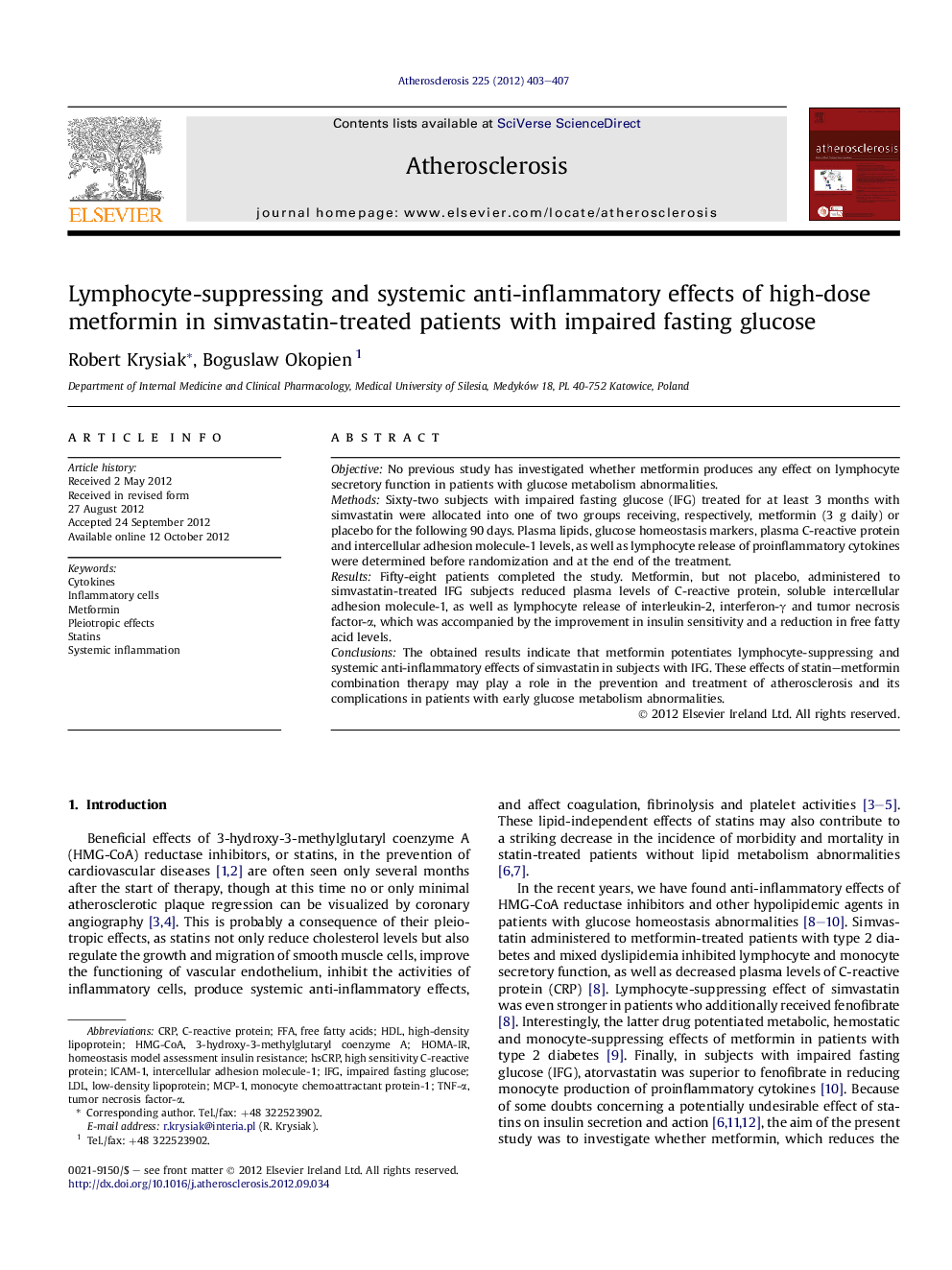| Article ID | Journal | Published Year | Pages | File Type |
|---|---|---|---|---|
| 5948323 | Atherosclerosis | 2012 | 5 Pages |
ObjectiveNo previous study has investigated whether metformin produces any effect on lymphocyte secretory function in patients with glucose metabolism abnormalities.MethodsSixty-two subjects with impaired fasting glucose (IFG) treated for at least 3 months with simvastatin were allocated into one of two groups receiving, respectively, metformin (3 g daily) or placebo for the following 90 days. Plasma lipids, glucose homeostasis markers, plasma C-reactive protein and intercellular adhesion molecule-1 levels, as well as lymphocyte release of proinflammatory cytokines were determined before randomization and at the end of the treatment.ResultsFifty-eight patients completed the study. Metformin, but not placebo, administered to simvastatin-treated IFG subjects reduced plasma levels of C-reactive protein, soluble intercellular adhesion molecule-1, as well as lymphocyte release of interleukin-2, interferon-γ and tumor necrosis factor-α, which was accompanied by the improvement in insulin sensitivity and a reduction in free fatty acid levels.ConclusionsThe obtained results indicate that metformin potentiates lymphocyte-suppressing and systemic anti-inflammatory effects of simvastatin in subjects with IFG. These effects of statin-metformin combination therapy may play a role in the prevention and treatment of atherosclerosis and its complications in patients with early glucose metabolism abnormalities.
⺠Metformin potentiates lymphocyte-suppressing effects of simvastatin in IFG subjects. ⺠This action is accompanied by a decrease in plasma levels of hsCRP and ICAM-1. ⺠Statin-metformin combination therapy may bring benefits to patients with prediabetes.
